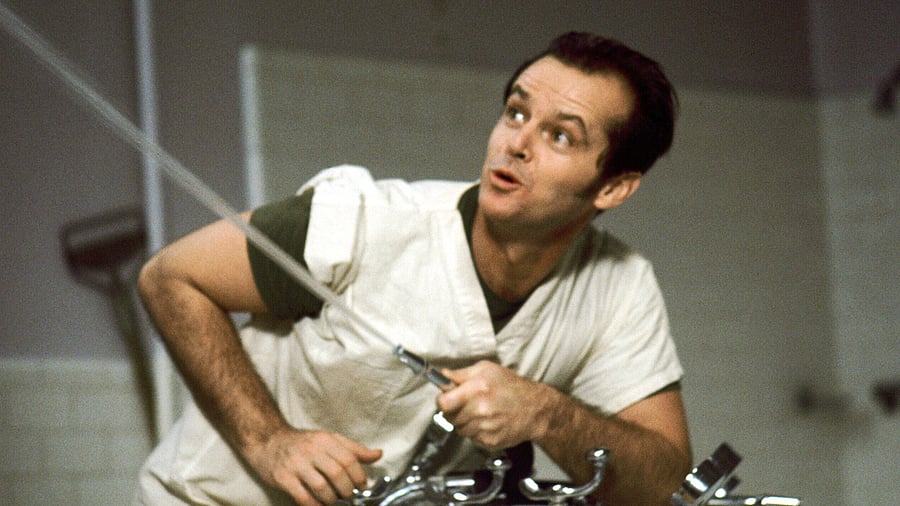
Fifty years since it was released, ‘One Flew Over the Cuckoo’s Nest’, remains a timeless gem for its existential themes and exploration of the mental health system, authority and quest for freedom.
Based on Ken Kesey’s 1962 novel of the same name, the highly-acclaimed 1975 film is powerful and ironically, it is as depressing as it is uplifting.
It went on to win the top five Oscars — Best Picture, Actor (Jack Nicholson), Actress (Louise Fletcher), Director (Milos Forman) and Screenplay (Bo Goldman). It is also credited with some of the most memorable on-screen performances.
The movie is set in the early ’60s in the psychiatric ward of a state-run mental hospital in Oregon (USA) known for its brutal routines and treatment procedures. The ward is ruled by the authoritarian Nurse Ratched (Louise Fletcher) gaslighting patients into doing what she wants. But when the latest patient Randle McMurphy (Jack Nicholson) is admitted and begins questioning the rules she imposes on the inmates, he upsets the apple cart.
A power struggle ensues between the two; Nurse Ratched is determined to get McMurphy to fall in line but he is not one to conform easily and is bent on making life better for the patients.
Despite its bleak and serious setting and attracting flak for its casual racism, misogyny and violence against women, the film has moments of levity and fun, making it truly uplifting. There are many memorable scenes — the cards and basketball game, the fishing trip and the wild party.
Ken Kesey’s novel resonated powerfully with the movie’s director, Czech filmmaker Milos Forman who struggled with censorship and authoritarianism before leaving his own country. “The Communist Party was my Nurse Ratched, telling me what I could and could not do; what I was or was not allowed to say; where I was and was not allowed to go; even who I was and was not,” Forman wrote in an opinion piece in 2012.
At the time the novel was written, the storyline could have been construed as a metaphor for the authoritarian Soviet system but it could well apply to the current right-wing dictatorships in several parts of the world.
Indeed, the film looked at what it means for a person to be really ‘free’ and not shackled to the systems created by society. In a world where freedom is under severe threat, the questions posed in the film (and the book obviously) are serious and relevant to all ages, more so in contemporary times.
Like the hero McMurphy who symbolised rebellion against oppressive authority, people need to question authority — the government, societal norms and powerful bodies — and not blindly accept their dictates as to how one should lead one’s life. As Martin Luther King Jr said: “Freedom is never voluntarily given by the oppressor; it must be demanded by the oppressed.”
Pertinently, the film trains a critical lens on the mental health system, the stigma surrounding mental illness, unethical punishments and the dehumanising effects of institutionalisation and how it leads to loss of individuality and self-worth as also understanding for those who are mentally sick.
Importantly, the film highlights the dreadful tactics used by typical authoritarian regimes where people are threatened and manipulated until they conform or surrender or even take their own lives. A scene that springs to mind is when an inmate Billy is caught in a compromising position with a woman after a wild party. Nurse Ratched capitalises on Billy’s morbid fear of his mother and threatens to inform her. A spooked Billy kills himself.
‘One Flew Over the Cuckoo’s Nest’ has been hailed by critics as a “very moving” and truly “beautiful cinematic experience”. The film will be remembered for many more years not only as one of the best films made and for the stellar performances of every actor but also for shining a bright light on the mentally unstable and how they are treated or rather need to be treated.